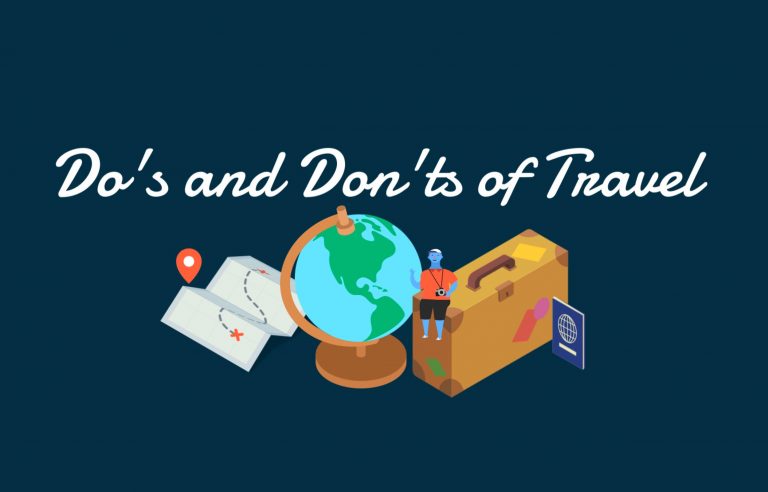Zombie Bunny is Reader-supported and may earn an affiliate commission through links on our site.

Reinventing Yourself: The Guide to Changing Careers Later in Life
Considering a career change later in life? Discover how this transformative journey can reignite your passion for work, improve your work-life balance, and offer new learning opportunities.
Thinking about a career change? This blog explores how shifting careers later in life can be a remarkable opportunity for personal and professional growth. From reigniting your passion for work and improving your work-life balance, to opening doors to new learning opportunities and lifelong personal growth, a career change can be a transformative journey. You’ll also find practical guidance on how to navigate this transition successfully, including recognizing signs for a career change, aligning your career with your personal values, dealing with concurrent life transitions, and maintaining work-life balance. Embrace the change and harness the power of career transition to lead a more fulfilling, balanced, and successful life.
Introduction: Embrace the Change

© Copyright , ZombieBunny.Org
Understanding the importance and benefits of career change
Career change, often perceived as a daunting endeavor, can indeed be a remarkable opportunity for personal and professional growth. The decision to shift careers later in life, far from being a sign of instability, reflects your ability to adapt, evolve and pursue authentic fulfillment. This transition, albeit challenging, can lead to numerous benefits that enrich your life in substantial ways.
Firstly, a career change can reignite your passion and enthusiasm towards work. Stagnation in a role that no longer excites you can lead to burnout, impacting both your mental health and job performance. By exploring new career avenues, you get the chance to rediscover your zeal and work in an environment that aligns with your current interests and values. Secondly, a career transition can open the door to new learning opportunities. Acquiring new skills and knowledge not only enhances your professional competency but also stimulates personal growth and self-confidence.
Lastly, a career change can improve work-life balance. If your current job comes with long hours or high stress, switching to a career that offers flexibility can greatly enhance your quality of life. This shift can provide you with more time for family, hobbies, and self-care, leading to greater overall happiness and satisfaction.
In the rapidly evolving job market of the 21st century, the ability to reinvent oneself professionally is not just an asset but a necessity. Embrace the change and harness the power of career transition to lead a more fulfilling, balanced, and successful life.
Addressing the fear and uncertainty of change
Change, especially in the realm of careers, often brings with it a wave of fear and uncertainty. It’s only natural to feel apprehensive about leaving the familiar to venture into the unknown. However, it’s essential to remember that fear is not a red flag indicating danger, but rather a compass pointing towards growth and development.
Embracing career change means acknowledging this fear and then consciously choosing to move forward despite it. It involves embracing uncertainty as an integral part of the transition. Uncertainty can be reframed as possibility – the exciting potential of new roles, new skills, and new experiences waiting to be discovered. It’s this shift in perspective that turns the daunting unknown into a thrilling adventure.
Addressing fear also involves thorough preparation and planning. Equip yourself with the right skills and knowledge for your desired career. This not only increases your confidence but also reduces the fear associated with stepping into new territory. Moreover, remember that you’re not alone on this journey. Seek advice from mentors, join support groups, or connect with others who have successfully navigated career transitions. Their insights can be incredibly valuable in easing your fears and providing practical guidance.
In essence, it’s natural to feel fear and uncertainty when contemplating a career change later in life. But with the right mindset, preparation, and support, you can turn these feelings into powerful catalysts for personal and professional transformation. Embrace the change, and let it propel you towards a career that brings fulfillment and joy.
Highlighting the trend of job transition in modern times
In the dynamic landscape of the modern job market, the concept of a linear career path is increasingly outdated. The trend of job transition, once seen as an anomaly, is now becoming the norm. With the rise of new industries and technologies, along with shifts in economic conditions and societal values, more and more individuals are choosing to reinvent their careers later in life.
In fact, data suggests that the average person changes jobs 12 times during their career. This trend is not limited to younger generations, either. Studies show a significant increase in career changes among individuals over 45, signaling a shift in societal attitudes towards midlife and late-life career transitions.
One significant driver of this trend is the digital revolution. The internet has democratized access to information and learning, making it easier than ever to acquire new skills and switch careers. Online courses, webinars, and digital mentorship platforms have emerged as vital tools for career reinvention, empowering individuals to explore new fields and industries.
Moreover, the current work culture emphasizes personal fulfillment and job satisfaction more than ever before. Workers are no longer content with merely earning a paycheck. They seek careers that align with their values, passions, and lifestyle preferences.
In conclusion, the trend of job transition is a reflection of the evolving job market and changing societal norms. It is a testament to the resilience, adaptability, and lifelong learning spirit of modern professionals. Embrace this trend as a positive and empowering aspect of the job landscape in the 21st century.
The Trigger: Identifying the Need for Change

© Copyright , ZombieBunny.Org
Signs and symptoms of needing a career change
Recognizing the signs and symptoms that signal a need for a career change is the first step towards successful career reinvention. It’s crucial to pay attention to these indicators, as they often point towards deeper issues of job dissatisfaction, burnout, or misalignment with personal values.
One common sign is a persistent feeling of boredom or lack of fulfillment at work. If you find yourself constantly watching the clock, dreading Mondays, or feeling indifferent about your tasks, it might be time to consider a career switch.
Another sign is chronic stress or burnout. While all jobs come with a certain degree of stress, it becomes a problem when it’s constant and overwhelming. If you’re constantly feeling exhausted, anxious, or unwell due to work, it’s a clear indication that something needs to change.
A significant misalignment between your job and your personal values can also signal a need for a career change. If you find your job conflicting with your beliefs, ethics, or lifestyle preferences, it can lead to a deep sense of dissatisfaction and disengagement.
Another indicator is a lack of growth or progression. If you feel stuck in your current role with no room for advancement or skill development, it might be time to explore new career paths.
Lastly, if you find yourself frequently fantasizing about a different career, it’s a sign that your current job might not be the right fit for you. These fantasies can provide valuable insights into what you truly desire in a career.
By recognizing these signs, you can proactively initiate a career change, leading to a happier and more fulfilling professional life.
The role of personal values in career decisions
Personal values play an integral role in career decisions, particularly when considering a mid-life career change. Your values are the core beliefs and principles that guide your behavior and decisions, acting as a compass that points you towards what truly matters in your life. When your career aligns with these values, it leads to a higher level of job satisfaction, fulfillment, and overall well-being.
For instance, if you deeply value helping others, a career in the social sector, healthcare, or education might bring you a sense of purpose and satisfaction. On the other hand, if you value creativity and self-expression, a role in the arts, advertising, or media may be more suitable.
Sometimes, a misalignment between your job and personal values can be a trigger for considering a career change. For example, if you value work-life balance but are stuck in a job that demands long hours and offers little flexibility, you may feel dissatisfied and stressed.
In the process of reinventing your career, it’s essential to reassess your values and ensure they’re at the heart of your decision-making process. Consider what truly matters to you – whether it’s intellectual challenge, financial security, social impact, autonomy, or recognition.
Remember, a fulfilling career is not just about what you do but also about why you do it. By aligning your career with your personal values, you’ll be more likely to find a job that not only pays the bills but also provides a deep sense of meaning and satisfaction.
Balancing career change with other life transitions
Embarking on a career change later in life often coincides with other significant life transitions, such as relocation, retirement planning, changes in family structure, or health concerns. Balancing these concurrent changes can indeed be challenging, but with mindful planning and resource management, it’s entirely feasible.
Firstly, it’s important to acknowledge that a career change is not an isolated process. It’s intertwined with multiple aspects of your life – from your financial stability and personal relationships to your physical health and mental well-being. Therefore, any decision about career transition should take into account its potential impact on these areas.
For instance, if you’re planning to relocate for a new job, consider how this move will affect your family, social relationships, and lifestyle. If you’re nearing retirement age, think about how a career change will influence your retirement plans and financial security.
Simultaneously, it’s crucial to maintain a support network during this transition period. Reach out to friends, family, mentors, or professional counselors who can offer advice, perspective, and emotional support.
Also, remember to take care of your physical health and mental well-being during the transition. Regular exercise, a balanced diet, adequate sleep, and mindfulness practices can help manage stress and boost your resilience.
Finally, be flexible and open to adaptation. Life transitions are rarely linear, and unexpected challenges may arise. Embrace these as opportunities for growth and learning. With patience, perseverance, and a positive mindset, you can successfully balance a career change with other life transitions, turning this period into a rewarding journey of self-discovery and growth.
The Exploration: Discovering Your Passion

© Copyright , ZombieBunny.Org
Using self-reflection to identify your interests and passions
Self-reflection is a powerful tool in the journey of career reinvention. As you contemplate a career change, it’s critical to take some time for introspection to identify your interests and passions. Understanding what truly motivates and excites you can provide crucial insights into what kind of career would bring you fulfillment and satisfaction.
Start by asking yourself some key questions: What activities make you lose track of time? What topics do you find yourself drawn to in books, articles, or discussions? What kind of work would you willingly do even if you weren’t getting paid? The answers can help you identify themes and patterns that point to your underlying interests and passions.
Consider your skills and talents as well. What are you naturally good at? What skills do you enjoy using? Often, our passions align with our competencies.
Also, reflect on your past experiences and achievements. What were the most fulfilling moments in your career, and why? What past roles or projects excited you the most?
Pay attention to your emotions and physical reactions during this process of self-reflection. Excitement, joy, and a sense of flow are often indicators of a true passion.
Remember, identifying your passions is not about finding that one perfect job or career pathway. It’s about understanding your core motivations and interests, which can express themselves in multiple ways across different careers. With this self-awareness, you’ll be better equipped to make a career change that aligns with your authentic self and brings you lasting fulfillment.
Understanding your skills and how they can transfer
Understanding your current skills and how they can transfer to a new career is a crucial step in the journey of career transition. Even if you’re contemplating a move to a vastly different field, you likely possess valuable skills that can be utilized in your new career.
Start by making a list of all the skills you’ve acquired in your previous roles. These could be technical skills specific to your industry, such as proficiency in a certain software or language, or soft skills like communication, leadership, problem-solving, and adaptability.
Once you have this list, identify which of these skills are transferable, meaning they are valued across various industries and roles. For instance, skills like project management, data analysis, customer service, and teamwork are sought after in numerous fields.
Next, think about how these skills can apply to the career you’re interested in. For example, if you’re moving from sales to a career in education, your excellent communication skills, ability to persuade, and understanding of human psychology could be beneficial in a teaching or counseling role.
Remember, every skill you’ve acquired has potential value. Even if it doesn’t seem directly applicable, it may contribute to your unique perspective and approach in your new role.
It’s also worth noting that skills can be developed and refined. If your desired career requires skills you don’t currently possess, consider seeking training or education to acquire them. By understanding and leveraging your transferable skills, you can make a successful and fulfilling career change.
Evaluating career options based on your passion
Once you’ve identified your passions and transferable skills, the next step is to evaluate career options that align with these elements. This process involves researching and considering various roles and industries where your interests and skills can be put to use.
Begin by conducting an industry analysis. Look out for fields that align with your passions and have a demand for your skills. For instance, if you have a passion for technology and possess strong problem-solving skills, the tech industry might be a good fit.
Next, dive deeper into specific roles within these industries. Job descriptions can provide valuable insights into the daily tasks, required skills, and potential career growth in a particular role.
Consider factors such as job satisfaction, work-life balance, and financial stability. While passion is important, it’s also crucial to ensure that your new career can provide a sustainable and fulfilling lifestyle.
Networking can also play a significant role in evaluating career options. Connect with professionals in your chosen field, attend industry events, or join online forums and discussions. These interactions can provide first-hand insights into what it’s like to work in that industry or role.
Finally, remember that it’s okay to explore multiple options and take your time to make a decision. A career change is a significant step, and it’s important to make a choice that aligns with both your passion and practical needs. By carefully evaluating your options, you can make a confident and informed decision about your new career.
The Preparation: Building Your Skills

© Copyright , ZombieBunny.Org
How to acquire new skills for your desired career
Acquiring new skills is a vital part of preparing for a career change. As you transition into a new role or industry, you may need to develop specific competencies to succeed. Fortunately, with the plethora of resources available today, learning new skills is more accessible than ever.
Online courses are a popular and convenient way to acquire new skills. Platforms like Coursera, Udemy, and LinkedIn Learning offer a wide range of courses in various fields, from coding and data analysis to marketing and design. These platforms often provide certificates upon completion, which can be added to your resume or LinkedIn profile.
Workshops and seminars, both online and offline, are also valuable resources. These can provide hands-on experience and the opportunity to learn from industry experts.
Consider pursuing further education, such as a diploma or degree, if it aligns with your new career goals. This can be particularly beneficial if you’re transitioning into a field that requires specialized knowledge or credentials.
Don’t overlook the power of self-learning. Books, podcasts, and online articles can provide a wealth of knowledge.
Networking can also aid in skill acquisition. Connecting with professionals in your desired field can provide insights into the most relevant and in-demand skills.
Lastly, remember that acquiring new skills is an ongoing process. The job market is dynamic, and continuous learning is crucial to stay relevant and competitive. By actively seeking to learn and grow, you can smoothly transition into your new career and excel in it.
The importance of continuous learning and development
In the rapidly evolving job market of the 21st century, continuous learning and development are no longer just assets, but necessities. As technological advancements and industry trends continually reshape the professional landscape, the ability to adapt and grow becomes crucial. By cultivating a mindset of lifelong learning, you can stay relevant, competitive, and ready to seize new opportunities.
Continuous learning expands your skill set, enhancing your versatility and employability. It opens up new possibilities, allowing you to adapt to changes in your current role or transition into a completely new career.
Furthermore, learning and development fuel personal growth. They boost your confidence, stimulate intellectual curiosity, and enhance your problem-solving abilities. They can also lead to improved job satisfaction, as acquiring new skills can make your work more challenging and engaging.
Moreover, continuous learning demonstrates a proactive attitude and a commitment to self-improvement, qualities that are highly valued by employers. It can open doors to career advancement opportunities and increased earning potential.
The opportunities for continuous learning are abundant. From online courses and webinars to industry workshops, books, and mentorship programs, there are numerous resources at your fingertips.
Remember, learning is not a destination but a journey. Embrace this journey of continuous growth and development, and you’ll be well-equipped to thrive in your current role, transition successfully into a new career, or seize whatever opportunities come your way.
Utilizing online resources for skill building
The digital age we live in offers a wealth of online resources for skill-building, making it easier than ever to prepare for a career transition. These resources allow you to learn at your own pace, from the comfort of your home, and often for a fraction of the cost of traditional education.
Online courses are a particularly valuable resource. Platforms such as Coursera, Udemy, and LinkedIn Learning offer courses on a wide range of topics, from project management and data analysis to digital marketing and graphic design. Many of these courses are created and taught by industry professionals, providing practical, real-world insights.
Webinars and online workshops offer another avenue for learning. These interactive sessions often provide opportunities to engage with experts, ask questions, and even network with other participants.
Online reading materials, such as e-books, blogs, and research articles, can also provide a wealth of knowledge. Websites like Medium, Harvard Business Review, and industry-specific blogs are excellent sources of information and insights.
Podcasts and video tutorials are other valuable tools for learning. They offer the advantage of being accessible ‘on-the-go’, allowing you to learn while commuting, exercising, or doing household chores.
Online communities and forums, such as Reddit, Quora, and industry-specific networking sites, can also be useful. They offer a platform to ask questions, share knowledge, and get advice from peers and experts.
In conclusion, online resources offer versatile, accessible, and cost-effective ways to build skills and prepare for your new career. Leverage these resources to enhance your learning and boost your career transition journey.
The Strategy: Planning Your Career Switch

© Copyright , ZombieBunny.Org
Creating a detailed plan for your career switch
Creating a detailed plan is an essential step in making a successful career switch. It provides direction, sets clear goals, and acts as a roadmap guiding you through the transition process.
Start by defining your career objectives. What role or industry are you aiming for? What skills do you need to acquire? What is the timeline for your transition? Having clear answers to these questions sets the foundation for your plan.
Next, identify the steps you need to take to reach your goals. This could involve acquiring new skills through education or training, gaining experience through internships or volunteering, or building a network in your desired industry.
Set specific, measurable, achievable, relevant, and time-bound (SMART) goals for each of these steps. For example, instead of saying “I want to learn digital marketing,” a SMART goal would be “I will complete a digital marketing certification course in the next three months.”
Budgeting is another critical aspect of your plan. Consider the costs associated with your career change, such as tuition fees for courses or potential loss of income during the transition. Plan how you will finance these costs while maintaining financial stability.
Finally, include a contingency plan. Career transitions rarely go exactly as planned, and having a backup plan can help you navigate unexpected obstacles or setbacks.
Remember, a career switch is a significant life change, and careful planning can make the process smoother and more successful. By creating a detailed plan, you can embark on your career transition journey with confidence and clarity.
Setting realistic goals and timelines for your transition
Setting realistic goals and timelines is a crucial aspect of planning your career transition. It helps maintain your motivation, track your progress, and manage your expectations during the transition process.
When setting goals, consider both your end objective and the steps needed to achieve it. Your end goal might be the job title you want or the industry you want to break into. The steps could involve acquiring new skills, gaining experience, or building your network.
Ensure your goals are SMART – Specific, Measurable, Achievable, Relevant, and Time-bound. A SMART goal could be, “I will complete an online course in data analysis within the next six months,” or “I will attend at least one industry networking event per month.”
When setting timelines, be realistic about how much time you can commit to your career transition. Consider other commitments in your life, such as your current job, family responsibilities, or personal interests. Remember that career transitions often take longer than anticipated, so allow some flexibility in your timelines.
Break down your goals into smaller, manageable tasks, and set deadlines for each task. This makes your transition plan less overwhelming and easier to manage.
Remember to celebrate small victories along the way. Each step you complete brings you closer to your end goal and deserves recognition.
By setting realistic goals and timelines, you can navigate your career transition in a structured, focused, and effective manner, making the process less daunting and more successful.
Adapting your strategy as your career transition evolves
As you embark on your career transition journey, it’s important to understand that your strategy may need to evolve along the way. Career transitions are rarely linear, and unexpected challenges, opportunities, or insights may arise that necessitate changes in your plan.
Start by regularly reviewing and assessing your transition strategy. Are you on track with your goals and timelines? Are the steps you’re taking leading you towards your desired career? If not, it’s time to adapt your plan.
Changes in your personal circumstances, such as family responsibilities or financial status, may also require adjustments in your strategy. For instance, you may need to extend your transition timeline or explore part-time learning options.
Stay open to new learning and experiences during your transition process. You may discover new interests or skills that could open up different career paths. Similarly, feedback from mentors, peers, or industry professionals may provide valuable insights that could reshape your strategy.
Moreover, changes in the job market or industry trends could impact your career transition. Stay updated with industry news and adjust your plan as needed to align with these trends.
Remember, a career transition is a journey of exploration and learning. Being flexible and adaptable is key to navigating this journey successfully. By regularly evaluating and adapting your strategy, you can stay aligned with your career goals and effectively respond to the dynamics of the career transition process.
The Execution: Making Your Move

© Copyright , ZombieBunny.Org
Navigating the job market in your new field
As you prepare to make your career switch, understanding and navigating the job market in your new field becomes crucial. It involves researching industry trends, understanding the skills in demand, and effectively marketing yourself to potential employers.
Begin by conducting an industry analysis. Identify the major players, upcoming trends, and potential challenges in your desired field. You can gather this information from industry reports, news articles, professional forums, and networking events.
Next, understand the skills and qualifications in demand. Job descriptions, industry blogs, and conversations with industry professionals can provide insights into the skills you need to stand out in your new career.
When applying for jobs, tailor your resume and cover letter to highlight your transferable skills, relevant experiences, and passion for the field. Even if you don’t have direct experience, showcasing your ability to learn and adapt can make a strong impression.
Leverage your network during your job search. Reach out to contacts in your desired field, attend industry networking events, or join relevant professional groups on platforms like LinkedIn. Networking can often lead to job opportunities and valuable advice.
Finally, be patient and persistent. A career transition involves stepping out of your comfort zone and into a new and unfamiliar territory. It may take time, but with determination and resilience, you will navigate the job market in your new field and successfully make your career switch.
Using networking to facilitate your career switch
Networking plays a pivotal role in facilitating a career switch. It opens doors to new opportunities, provides valuable insights about your desired industry, and can even lead to mentorship relationships that support your transition.
Start by reaching out to your existing network. Let them know about your plans to switch careers and the industry you’re interested in. They might provide useful advice, connections, or job leads.
Professional networking platforms like LinkedIn are valuable tools for expanding your network. Follow industry leaders, join relevant groups, and participate in discussions to increase your visibility and connect with professionals in your chosen field.
Attend industry networking events, conferences, and workshops. These gatherings offer opportunities to meet industry professionals, learn about the latest trends, and get a sense of the industry culture.
Informational interviews are another effective networking strategy. Reach out to professionals in your desired field and request a brief meeting to learn about their career path, the industry, and any advice they have for someone looking to transition into the field.
Remember, networking is a two-way street. Aim to build mutually beneficial relationships. Offer help when you can, and show genuine interest in the people you connect with.
Lastly, be patient. Networking is a long-term investment that requires time and consistency. By actively and strategically building your network, you can facilitate your career switch and lay the foundation for a successful career in your new field.
Approaching interviews and negotiations in your new career
Once you’ve navigated the job market and landed interviews in your new career, it’s crucial to know how to present yourself effectively and negotiate your terms of employment.
In interviews, focus on showcasing your transferable skills and enthusiasm for the new field. Even if you lack industry-specific experience, demonstrating your adaptability, eagerness to learn, and understanding of the industry can make a strong impression.
Prepare for common interview questions and tailor your responses to your new career. For instance, when asked about your strengths, highlight those relevant to your desired role. If asked about your lack of experience in the field, discuss how your transferable skills and fresh perspective can bring value.
Research the industry standards for salary and benefits in your new field. This knowledge will be helpful when negotiating your job offer. Be honest about your expectations and be ready to discuss how your skills and potential contribute to your desired compensation.
Remember, negotiation is not just about salary. Consider other aspects such as work hours, remote work options, professional development opportunities, and other benefits.
Lastly, be confident and positive. A career switch is a courageous step, and your determination and initiative speak volumes about your character and potential.
By approaching interviews and negotiations with preparation and confidence, you can secure a job offer that aligns with your career goals and offers a fulfilling and rewarding career in your new field.
The Transition: Settling Into Your New Career

© Copyright , ZombieBunny.Org
Thriving during the initial period of your new career
The initial period of your new career can be challenging yet exciting. As you navigate this phase, it’s essential to focus on learning, building relationships, and establishing your place in the new environment.
Begin by setting realistic expectations. Understand that it’s okay to not know everything and to make mistakes. This is a period of learning and growth. Show eagerness to learn and take on challenges, and don’t hesitate to ask questions or seek help.
Building relationships is another crucial aspect. Make an effort to get to know your colleagues and superiors. Networking within your new workplace can provide valuable insights, aid your learning process, and facilitate your integration into the team.
Take the initiative to understand the company culture and align yourself with it. This could involve understanding the company’s values, work ethic, and communication styles.
Maintain a positive and resilient mindset. Transitioning into a new career can be demanding, and there may be moments of self-doubt or stress. Remind yourself of why you made this career switch and the rewards that lie ahead once you’ve fully settled into your new role.
Finally, continue to invest in your learning and development. The learning process doesn’t stop once you’ve made the career switch. Staying updated with industry trends and continuously enhancing your skills can help you excel in your new career.
By focusing on learning, relationship-building, and maintaining a positive mindset, you can thrive during the initial period of your new career and lay a solid foundation for long-term success.
Adapting to the culture and expectations of your new job
When transitioning into a new career, adapting to the culture and expectations of your new job is a key aspect of settling in. Understanding the work environment, the company’s values, and the performance expectations can significantly influence your success and job satisfaction.
Start by observing and understanding the company culture. This includes the work environment, communication styles, office rituals, and the level of formality or informality. Adapting to these aspects can facilitate your integration into the team and improve your working relationships.
Understanding the company’s values and aligning yourself with them is equally important. These values often guide the company’s decision-making process, work ethics, and expectations from its employees. Demonstrating that you share these values can build trust and respect among your colleagues and superiors.
Performance expectations are another critical aspect to understand. Be clear about your role, responsibilities, and the metrics of success. Regular feedback sessions with your supervisor can be helpful in understanding these expectations and gauging your performance.
Be open and receptive to feedback. It can provide valuable insights into your performance and areas of improvement. Positive feedback can reinforce your efforts, while constructive criticism can guide your learning and growth.
Remember, adapting to a new job culture and expectations takes time and patience. Stay open-minded, be proactive in your learning, and don’t hesitate to seek guidance when needed. By effectively adapting to your new work culture and expectations, you can thrive in your new career and contribute positively to your new workplace.
Building relationships in your new career field
Building relationships is a critical part of settling into your new career field. It aids your learning process, helps you integrate into the team, and can even pave the way for future opportunities.
Start by making an effort to get to know your colleagues. Understand their roles, their career paths, and their areas of expertise. Casual conversations during lunch or coffee breaks can be a good starting point.
Don’t limit your networking to your immediate team. Build connections with people across different departments and levels of the organization. This can provide a broader understanding of the company and industry, and also increase your visibility within the organization.
Mentorship can be another valuable relationship in your new career field. A mentor can provide guidance, share insights, and support your professional development. This could be a senior colleague, your supervisor, or someone outside your organization but within your industry.
Remember, relationship-building is not a one-way street. Be willing to offer help, share your own experiences, and contribute to the team. This can help build mutual respect and foster strong, productive relationships.
Networking events and professional associations in your new field can also offer opportunities to build relationships. These platforms can connect you with industry professionals, potential mentors, and even future job opportunities.
By actively building relationships in your new career field, you can facilitate your transition, enrich your work experience, and create a strong support network to navigate your new career journey.
The Evolution: Growing in Your New Role

© Copyright , ZombieBunny.Org
Learning and growing in your new role
Once you’ve settled into your new career, the focus shifts to learning and growing in your new role. This involves continuously enhancing your skills, seeking feedback, and embracing opportunities for professional development.
Start by identifying the skills and knowledge areas crucial for your role. This could involve technical skills, industry-specific knowledge, or soft skills like communication or leadership. Actively seek ways to enhance these skills, whether through on-the-job learning, online courses, workshops, or mentoring.
Feedback plays a key role in learning and growth. Regularly seek feedback from your supervisor and colleagues. Constructive feedback can provide insights into your performance and guide your learning process. Equally, positive feedback can reinforce your confidence and motivate you to keep improving.
Embrace opportunities for professional development. This could be attending industry conferences, taking on challenging projects, or even seeking promotions or lateral moves within the company. These experiences can enrich your skills, broaden your perspective, and accelerate your career growth.
Maintain a mindset of continuous learning. The job market and industry trends are dynamic, and staying updated can enhance your performance and employability.
Lastly, remember to celebrate your growth and achievements. Reflect on how far you’ve come since you embarked on your career transition journey. Use these reflections as a source of motivation to keep learning and growing in your new role.
By focusing on learning and growth, you can thrive in your new career, contribute significantly to your workplace, and pave the way for a fulfilling and successful career.
Seeking promotions and higher opportunities
As you grow in your new role and gain confidence in your abilities, you may start seeking promotions and higher opportunities. These can provide new challenges, enhance your skills, and further your career growth.
Start by understanding the career progression path in your new field. This can be done by speaking with your supervisor, HR, or more experienced colleagues. Understand the skills, experiences, and performances needed to move up the ladder.
Demonstrate your readiness for higher roles by exceeding expectations in your current role. This could involve delivering high-quality work, taking on additional responsibilities, or demonstrating leadership skills. Consistently high performance can make a strong case for your promotion.
Express your aspirations to your supervisor. Discuss your career goals, seek their advice, and understand the opportunities available within the organization. This shows your initiative and commitment to growth.
Invest in continuous learning and development. This could involve acquiring advanced skills, seeking industry certifications, or even pursuing higher education. These can boost your qualifications and make you a strong candidate for promotions.
Networking can also aid your career progression. Building relationships with influential people in your organization can increase your visibility and open up opportunities.
Remember, seeking promotions and higher opportunities is a journey that requires patience, persistence, and resilience. By demonstrating your competence, expressing your aspirations, and continuously enhancing your skills, you can pave the way for promotions and higher opportunities, thereby accelerating your career growth in your new field.
Maintaining work-life balance in your new career
As you progress in your new career, maintaining a healthy work-life balance becomes crucial. It can boost your productivity, prevent burnout, and enhance your overall well-being.
Start by setting clear boundaries between your work and personal life. This could involve designated work hours, avoiding work-related activities during personal time, and ensuring you take regular breaks during the workday.
Prioritize your tasks and manage your time effectively. Not everything needs to be done immediately. Understand what tasks are urgent and important, and plan your day accordingly. Effective time management can prevent work overload and leave you with enough time for personal activities.
Ensure you make time for relaxation and hobbies. Whether it’s reading, exercising, gardening, or spending time with loved ones, engaging in activities you enjoy can help unwind and reduce stress.
Taking care of your physical health is equally important. This includes regular exercise, a balanced diet, and adequate sleep. A healthy body can boost your energy levels and productivity at work.
Mindfulness and stress management techniques, such as meditation or yoga, can also aid in maintaining work-life balance. They can help you stay calm, focused, and better equipped to handle work pressures.
Finally, remember it’s okay to seek help when needed. Whether it’s delegating tasks at work or seeking support from family and friends, asking for help can lighten your load and prevent burnout.
Maintaining work-life balance is a continuous process that requires conscious effort. By setting boundaries, managing time effectively, and taking care of your physical and mental health, you can maintain a healthy work-life balance and thrive in your new career.
The Reinvention: Becoming Your New Self

© Copyright , ZombieBunny.Org
Embracing your new identity in your career
As you settle into your new career and start growing in your role, it’s crucial to embrace your new identity. This involves accepting your new career path, feeling proud of your transition, and defining what this new role means to you.
Start by reflecting on your career transition journey. Acknowledge the courage it took to make the switch, the challenges you overcame, and the growth that occurred along the way. This can foster a sense of pride and confidence in your new career.
Next, define what your new role means to you. What values does it represent? How does it align with your skills, interests, and long-term goals? Understanding this can help you embrace your new identity and find fulfillment in your work.
Remember, your career is a significant part of your identity, but it’s not everything. Maintain a holistic view of yourself, acknowledging other roles you play, such as a parent, partner, friend, or volunteer. This can prevent your self-worth from being solely tied to your career and foster a balanced self-view.
Celebrate your successes, both big and small. Whether it’s completing a challenging project, receiving positive feedback, or simply feeling more comfortable in your role, each success is a testament to your adaptability and growth.
Finally, be patient with yourself. Embracing a new identity takes time. By reflecting on your journey, defining your role, and celebrating your successes, you can fully embrace your new career identity and thrive in your chosen path.
The psychological aspects of career change
Career change is not just a professional transition, but a psychological one too. It involves stepping out of your comfort zone, overcoming fears, and embracing a new identity, all of which can have significant psychological implications.
One of the most common psychological challenges is the fear of the unknown. The uncertainty associated with switching careers can cause anxiety and stress. It’s important to recognize this fear and develop coping strategies, such as positive self-talk, mindfulness techniques, or seeking support from a coach or therapist.
Imposter syndrome is another common psychological aspect. You might feel like you’re not qualified or capable enough in your new role. Understand that it’s normal to feel this way when stepping into unfamiliar territory. Remind yourself of your achievements, skills, and the hard work you’ve put into making this transition.
The process of changing careers can also impact your self-perception and identity. You’re not just changing jobs, but redefining a part of who you are. Embracing this new identity can take time and patience.
Lastly, remember that a career transition can also bring psychological benefits. Overcoming the challenges associated with career change can boost your confidence and resilience. The process of learning new skills and adapting to a new environment can enhance your cognitive flexibility.
By understanding and addressing the psychological aspects of career change, you can navigate your transition more smoothly and successfully step into your new career with confidence and optimism.
Celebrating the successful reinvention of your career
Celebrating the successful reinvention of your career is a crucial step in your transition journey. It’s a recognition of your courage, effort, and resilience, and it’s an opportunity to reflect on your growth and achievements.
Start by taking a moment to reflect on your journey. Think back to when you first decided to change careers, and acknowledge the courage it took to make that decision. Consider the challenges you faced along the way, and appreciate the strength and resilience you demonstrated in overcoming them.
Next, identify and celebrate your achievements. This could be landing your first job in your new field, completing a significant project, or receiving positive feedback from your colleagues or superiors. Each achievement, no matter how small, is a testament to your abilities and your successful transition.
Share your success with others. Whether it’s with family, friends, mentors, or colleagues, sharing your success can multiply your joy. It can also inspire others who might be considering a career change.
Consider rewarding yourself. This could be a small treat, a vacation, or anything that makes you happy. You’ve worked hard for this transition and you deserve to celebrate.
Finally, use this celebration as fuel for future growth. The successful reinvention of your career is not the end, but a new beginning. Let the confidence and satisfaction from your success motivate you to continue learning, growing, and reaching for higher goals in your new career.
Conclusion: The Journey of Career Transition

© Copyright , ZombieBunny.Org
Reflecting on the journey of career transition
As you reach the conclusion of your career transition journey, taking the time to reflect on this transformative process is invaluable. This reflection not only allows you to acknowledge and celebrate your growth but also provides insights for future career decisions and developments.
Consider the initial motivations behind your career change. Reflect on how well your new career aligns with these motivations. Has the switch fulfilled your expectations? This reflection can provide a sense of fulfillment and reinforce the validity of your decision.
Reflect on the challenges you encountered during this transition. What obstacles did you face? How did you overcome them? Understanding these challenges and your strategies to navigate them can boost your problem-solving skills and resilience.
Consider the skills and knowledge you’ve gained through this transition. How have these new competencies contributed to your professional growth? This reflection can enhance your self-awareness and confidence in your abilities.
Reflecting on the support you received during your transition is also important. Who were the people who supported you? How did they help you? This can reinforce the value of relationships and networking in your career development.
Finally, reflect on your future career goals. Now that you’ve successfully transitioned into your new career, what are your aspirations? How can you continue to grow in your new role?
Reflecting on your career transition journey provides valuable insights, reinforces your growth, and paves the way for continuous development in your new career.
The value of embracing change in career and life
Embracing change, whether in your career or life, holds immense value. It opens doors to new opportunities, fosters personal and professional growth, and enriches your life experiences.
In the context of career transition, embracing change allows you to pursue your passions, align your work with your values, and achieve greater job satisfaction. It gives you the chance to explore new fields, learn new skills, and broaden your professional horizon.
The process of navigating the change also enhances your resilience, adaptability, and problem-solving skills. Whether it’s overcoming the fear of the unknown, learning to navigate a new job market, or settling into a new role, each step of the journey refines these crucial life skills.
Embracing change also fosters personal growth. It encourages you to step out of your comfort zone, challenge your limits, and discover new facets of yourself. It can boost your confidence, enrich your self-identity, and contribute to your overall personal development.
Moreover, change brings new people, experiences, and perspectives into your life. It broadens your worldview, enhances your understanding of different fields, and enriches your life experiences.
In conclusion, embracing change in your career and life holds immense value. It fosters personal and professional growth, enriches your experiences, and opens doors to new opportunities. So, as you reflect on your career transition journey, remember to celebrate your courage to embrace change and the growth it has fostered.
Encouragement for others considering a career change
If you’re considering a career change, know that it’s a brave and rewarding step towards personal and professional fulfillment. It’s a journey of learning, growth, and self-discovery that can lead to a more satisfying and meaningful career.
Start by introspecting on your motivations for the change. Whether it’s pursuing your passions, seeking better work-life balance, or aiming for personal growth, having a clear understanding of your ‘why’ can guide your transition and keep you motivated during challenging times.
Remember, it’s never too late to change your career. Age, background, or lack of experience in your desired field should not deter you. With determination, strategic planning, and the right resources, you can successfully navigate this transition.
Embrace the learning process. Acquiring new skills, understanding a new industry, and adapting to a new work culture can be challenging but also exciting and enriching. Every step of the journey contributes to your professional and personal growth.
Don’t hesitate to seek support. Whether it’s career coaches, mentors, or supportive family and friends, having a strong support network can make your transition smoother.
Finally, believe in yourself. Changing careers is a test of courage and resilience. Trust in your abilities, embrace the journey with an open mind, and don’t let fear of the unknown hold you back.
In conclusion, if you’re considering a career change, embrace the journey with courage and optimism. It’s a rewarding path of growth, self-discovery, and ultimately, personal and professional fulfillment.
Please support our site and purchase something from our store.







